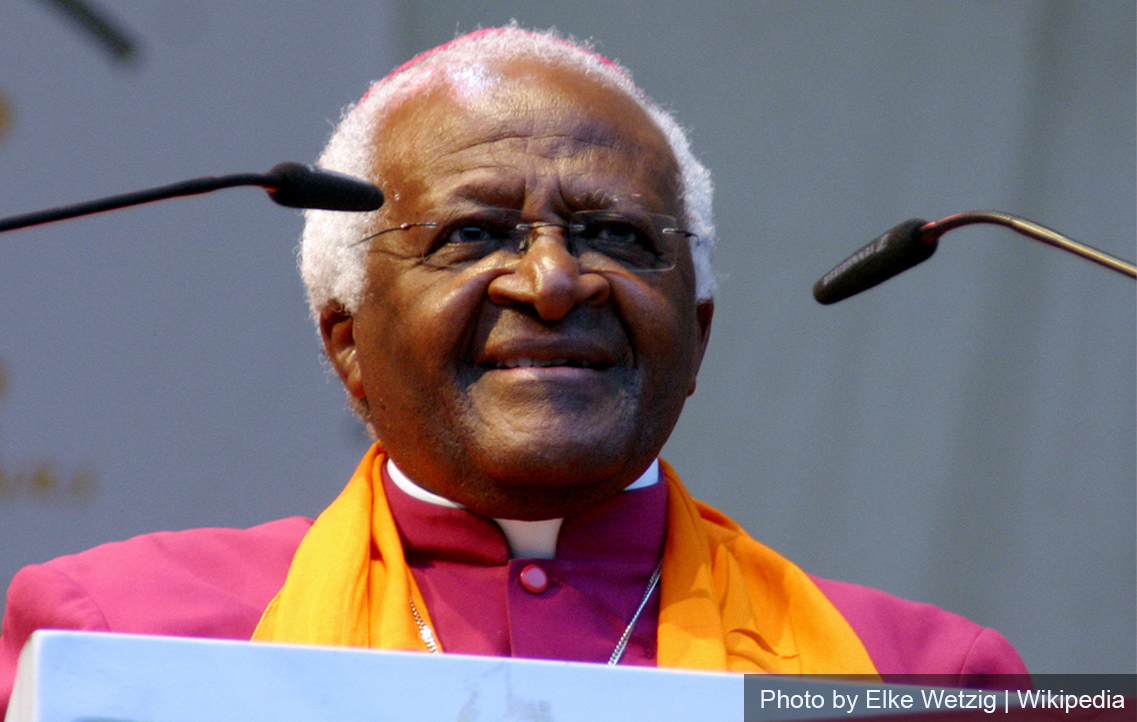
Archbishop Desmond Tutu, the Nobel Peace prize laureate who helped to end apartheid in South Africa, has died at 90. News of his passing has brought back an insistent memory.
I was studying at Cambridge in 1988 and feeling a little lonely because no one would be celebrating my birthday, which falls on July 18.
At the city centre, however, I came across a poster that lit up my spirits. Nelson Mandela’s birthday coincided with mine, I discovered to my existential surprise (although our birth years differed: his was 1918 and mine 1957). Never mind: a grand party had been organised in London’s Hyde Park on Sunday, July 17, to mark the freedom-fighter’s 70th year of existence in South Africa, a quarter of a century of which he had spent in jail by then. And Archbishop Desmond Tutu would be leading the birthday rally. What a poster!
That was not a party to be missed. True, I would not get to see the birthday boy in the flesh, but I would see and hear his closest spiritual comrade.
Hyde Park was a festival of freedom on that blessed Sunday. The grounds were packed by the time I arrived there. I could see the flags of the African National Congress embroidering the occasion, but not Tutu himself very clearly on the faraway stage. I could not catch the contours and gestures of the anguished conviction with which he mounted his opposition to racial injustice, viscerally and fiercely, here and now, as if nothing else mattered on heaven or on earth.
Although I could not see Tutu well, I heard him inveigh against the evil of apartheid as he held up Mandela as the greatest source of deliverance from the power of institutionalised racial supremacy.
Politics collapses difference and distance. As I heard Tutu, so did everyone around me: blacks and whites, young and old, women and men, lovers holding hands, parents with infants in their arms, children with ice-cream melting between their fingers, and children without ice-cream looking at their luckier counterparts. The very humanity of England, varied and dispersed unconscionably by race, creed, class and origins, seemed to have found refuge in a common moral crowd. I found myself within it, accepted unconditionally and observing the vicarious celebration of my free birthday in the invoked presence of the incarcerated Mandela.
I watched as if entranced as Tutu the dutiful priest of God exhorted all to come together to celebrate Mandela’s rebel presence on earth. Tutu gathered us all close to one another, eradicating individual difference and social distance in a massive, epic hope of a world free of the curse of apartheid, a world embodied in the single name, “Mandela”. Tutu did not speak of himself. He spoke of Mandela, who relayed himself to us through Tutu.
That birthday party at Hyde Park never quite ended. In London later, I was walking by the South African diplomatic mission when I saw, right in front of it, a young white woman sitting in an iron cage with a placard calling for freedom from apartheid.
My brown eyes met her blue sight. I smiled at her but she averted her look back into her pretend prison and took a swig from the bottle of water near her. I knew what she meant: If she, a free white woman, could be so close to the encaged blackness of male and female South Africa, what right did I, a brown male, have to walk free from her with an uncommitted smile? I bowed to her and pressed my palms together in an Indian namaste and walked on. A few steps later, I looked back. She was looking at me. It is never too late to believe in freedom.
Some hopes come true. Mandela was released in 1990, apartheid collapsed in that glad decade, and Mandela went on to become South Africa’s President and win the Nobel Peace prize. One man changed a country forever. The other man — Tutu — remained on the willing sidelines of Mandela’s political victory, walking on and on to make all nations worthy of their eventual arrival in a heaven whose timeless glory would shine on the freedom that humans had wrenched from oppressors on a stolen earth.
Mandela died in 2013, and with him went my celebratory birthdays. Now, Tutu the Archbishop, too, has left for his eternal abode, making the earth and me even poorer.
I have no hesitancy in saying that the victory of Vietnamese nationalism in 1975 and the fall of apartheid in the closing years of the 20th century are the two greatest achievements of the human will that I have witnessed in my life. Of course, I was not responsible for either of them in even the slightest of ways, but I have gained a sense of myself from their common legacy: that liberation is not only an idea but a reality that awaits nothing but the right confluence of events in which to prove its agency in political time.
I think that the young woman in the cage would agree with me. She must be sadder than me today at news of Tutu’s passing, but she would be happier in the knowledge that she did play a part, if even performative, in the uncaging of South Africa.
The author is co-general editor of the Singapore Chronicles series published by IPS and The Straits Times Press.
Top photo from Wikipedia.
